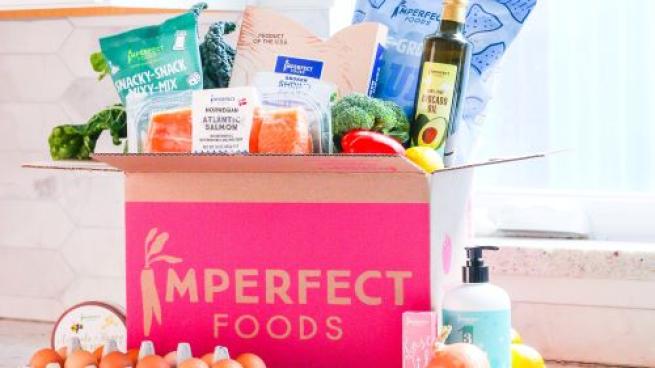The Next Frontier in Responsible Sourcing

Retailer Efforts
Earlier this year, German deep-discount retailer Aldi revealed a new sustainability charter built upon its existing framework of corporate responsibility initiatives. “This charter outlines our updated commitment to promoting human rights, supply chain transparency and ensuring products are produced in a way that respects the environment and those within our supply chain,” explains Joan Kavanaugh, VP of national buying at Batavia, Ill.-based Aldi U.S.
Under the charter, Aldi committed to source 100% of its exclusive-brand fresh, frozen and canned seafood from responsible fisheries and farms, a goal it met in 2019; to have 100% of its exclusive-brand chocolate and seasonal confectionery items certified as sustainably sourced by third-party suppliers, with select baking products like baking cocoa and morsels now also certified as sustainably sourced (completed this year); and to add more certified coffee to its product portfolio, with all Barissimo and Simply Nature brand coffee to be 100% certified as sustainably sourced by a third-party partner by 2022.
The retailer cares about more than the welfare of the planet, however: Aldi partners with fair- trade certifying organizations like Fairtrade America, Fair Trade USA and Rainforest Alliance to ensure products like coffee and cocoa are produced in a sustainable way.
“Certified fair-trade products receive a seal from these organizations once they are confirmed to meet their standards,” says Kavanaugh. “The seals are displayed on product packaging, making them easy for consumers to identify as they do their grocery shopping. When customers buy fair trade certified products from Aldi, they can be assured they were created in a manner that protects the environment and supports farmers’ livelihoods.”
The company is also supporting Fair Trade USA’s Just One Cup campaign this year to raise awareness of sustainable coffee during Fair Trade Month, helping the Oakland, Calif.-based organization to promote private label fair trade coffee by donating bags of Simply Nature Organic Single Origin Coffee from Honduras to share with consumers.
Lakewood, Colo.-based Natural Grocers sells only 100% organic produce, 100% non-GMO bulk foods, 100% pasture-based dairy, 100% free-range eggs, 100% humanely and conscientiously raised meats, and all of the grocers meats are raised without antibiotics, hormones and other growth promoters.
“Our standards are built around asking questions and setting high minimum standards, which differentiates us from all other retailers who usually only tout their highest-quality products but do not tell customers about all the lower-quality items on the shelf,” observes Christie Zimmerman, Natural Grocers’ product standards manager, food. “We ask questions and demand transparency and honesty in labeling. Questions about seeds, soil, feed for animals; how crops are raised; what are the unintended consequences of how something is created; what is the environmental impact on the land, water, wildlife; are people negatively affected by the industry producing the product; is the packaging or distribution detrimental – the list goes on. Our Things We Won’t Carry and Why list has been in place since the 1990s and transparently tells customers the ingredients not allowed on our shelves.”
To make sure that Natural Grocers customers are aware of these standards, the company undertakes “monthly good4u crew trainings to employees so they continually receive up-to-date nutrition education and can answer customer questions effectively,” notes Zimmerman “We utilize social media marketing, we film short documentaries like ‘Ghosts of the Great Plains,’ which was nominated for a regional Heartland Emmy in 2020, in addition to providing free science-based nutrition classes in stores and online, as well as free health coaching, cooking demos and more. Events like our Beauty and Body Care Bonanza event, Organic Harvest Month, [and] Non-GMO Month all highlight our standards by drawing specific attention to various standards throughout the year and how customers can make informed purchases. … All of these avenues help customers understand our standards, so they are empowered to make an ethical shopping decision that aligns with their personal values.”
The grocer’s work in this regard “sparks fierce loyalty” among shoppers, she asserts, attributing this response to “our high-level standards.”
For San Francisco-based e-grocer Imperfect Foods, reducing food waste is the main goal. “‘Save food whenever we can’ has been core to the Imperfect Foods mission since its inception,” affirms Madeline Rotman, the company’s head of sustainability.
Getting that message across involves full disclosure of what shoppers are getting in their boxed orders. “We tell our customers the imperfection of each item, whether it was too big or too small,” says Rotman. “This is the No. 1 way that we can communicate to our customers when we can save food. For staple items that we always have, like proteins, we share with our customers that our eggs are cage-free, our chicken is always antibiotic-free, and we offer grass-fed beef and pasture-raised pork.”
Imperfect Foods also recently launched a campaign with culinary celebrity Padma Lakshmi, “Behind the Box,” consisting of a video in which Lakshmi explores the e-retailer’s process, explaining how it works directly with farmers and producers to reduce food waste by bringing “ugly” and surplus groceries to consumers across the country.
The Humane League’s Coman-Hidy also has some advice for retailers seeking to promote their responsible-sourcing policies. “When an animal welfare commitment is made by retailers and other food companies, their detailed policy should be publicly listed on their website so that consumers can have a strong understanding of where their food is sourced from and the improvements the company is working towards,” he recommends, adding, “With any animal welfare standard, an important next step after putting a policy in place is to report progress toward the end goal. Companies can do so by annually reporting what percentage of their egg, pork or chicken supply meets the responsible-sourcing standards they’ve set.”
That way, he says, “consumers can make informed decisions regarding their food and lifestyle choices.”
progressivegrocer.com

